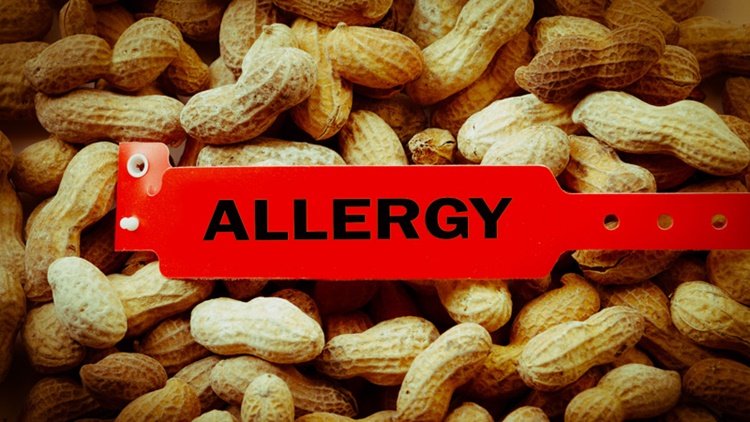Here are the symptoms, causes, and risk factors of peanut allergy
PEANUT ALLERGY – This allergy attack is one of the most common causes of severe allergy attacks to the point that it can be life-threatening.
An allergic response may occur within minutes after exposure and even a tiny amount can cause this. Based on the article Mayo Clinic, although you have a mild allergic reaction to peanuts, it is vital to talk to your doctor about this because it is inevitable that a more serious future reaction will put you at risk.

SYMPTOMS
- Runny nose
- Skin reactions, such as hives, redness or swelling
- Itching or tingling in or around the mouth and throat
- Digestive problems, such as diarrhea, stomach cramps, nausea or vomiting
- Tightening of the throat
- Shortness of breath or wheezing
Peanut allergy can be life-threatening and this condition is called Anaphylaxis. Having an allergic reaction to peanut is one of the most common food-induced anaphylaxis. This requires treatment with an epinephrine (adrenaline) injector (EpiPen, Symjepi, others) and a trip to the emergency room.
Here are the symptoms of anaphylaxis:
- Constriction of airways
- Swelling of the throat that makes it difficult to breathe
- A severe drop in blood pressure (shock)
- Rapid pulse
- Dizziness, lightheadedness or loss of consciousness
CAUSES
The allergic reaction happens when your immune mistakenly identifies peanut proteins as something harmful. Because of this, your body will release symptom-causing chemicals into your bloodstream whether you have direct or indirect contact. The most common cause of direct contact is eating peanuts but direct skin contact can also trigger the reaction. Another cause is cross-contact which is the unintended introduction of peanuts into a product (while the food is being processed it was exposed to peanuts). Inhalation can also be a cause. If you inhale dust or aerosols containing peanuts, from a source such as peanut flour or peanut oil cooking spray, the allergic reaction can be triggered, according to the article.
RISK FACTORS
Age
– most common in children, especially toddlers and infants
Past allergy to peanuts
– even if you seem to have outgrown peanut allergy, it may recur.
Other allergies
– other food allergies may put your at increased risk of becoming allergic to another
Family members with allergies.
– if other types of food allergies are common in your family, you are at risk to acquire peanut allergy
Atopic dermatitis
– people with atopic dermatitis (eczema) also have a food allergy
READ ALSO: SEASONAL ALLERGY: Food That Might Alleviate This Condition
